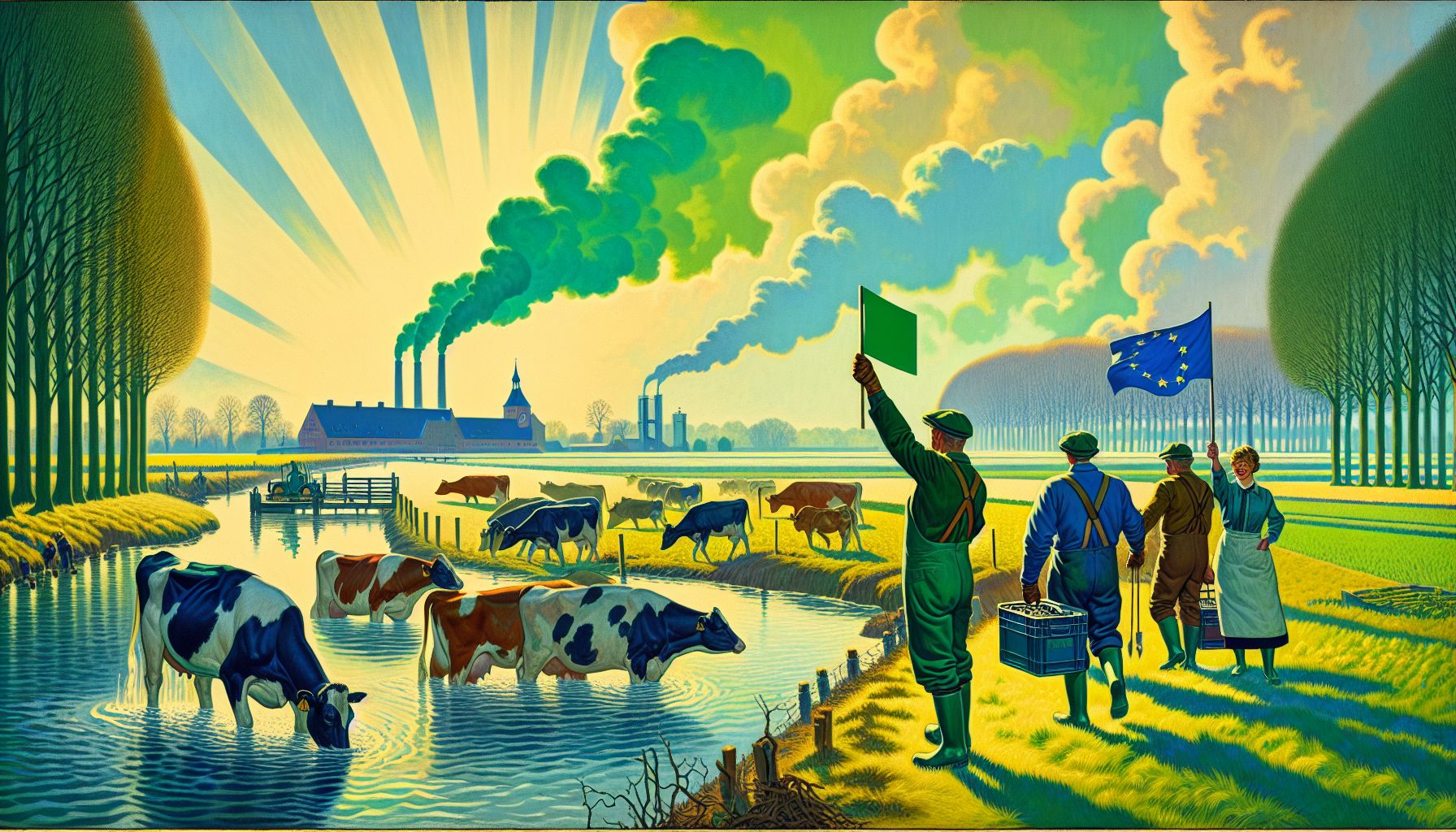Dutch Farmers Get EU Green Light for Relocation Subsidy

Brussels, Tuesday, 23 July 2024.
The European Commission has approved a €105 million scheme to help Dutch livestock farmers voluntarily relocate away from sensitive nature reserves. This initiative aims to reduce nitrogen deposition in vulnerable areas while supporting sustainable farming practices across the EU.
A Move Towards Sustainability
The newly approved subsidy plan is a significant step towards fostering sustainable farming practices. The initiative is part of the Netherlands’ broader strategy to combat excessive nitrogen emissions, which have been a growing concern for environmentalists and policymakers alike. With a total budget of €105 million, the program is designed to incentivize livestock farmers to move away from areas that are particularly vulnerable to nitrogen deposition, such as the overburdened Natura 2000 sites within the country.
Financial Assistance and Environmental Impact
The relocation scheme provides direct grants to farmers, covering up to 100% of the eligible costs associated with moving. This includes feasibility studies, dismantling and rebuilding facilities, and returning the abandoned sites to an environmentally satisfactory state. By financially supporting these relocations, the Dutch government aims to reduce the nitrogen load in sensitive areas, thereby improving air and water quality. This effort is in line with the European Green Deal’s objectives of promoting sustainable and environmentally friendly development in the agricultural sector.
Eligibility and Implementation
To be eligible for the relocation subsidy, livestock farms must have a nitrogen deposition load of at least 2,500 moles of nitrogen per year. The scheme is open to small and medium-sized livestock farmers who voluntarily choose to relocate their operations either within the Netherlands or to other parts of the European Union. The program is set to run until July 2029, providing ample time for farmers to make the transition. This long-term approach ensures that the relocation process is thorough and effective, minimizing disruptions to the farmers’ livelihoods while maximizing environmental benefits.
Broader Context and Future Prospects
This subsidy plan is part of a series of measures taken by the Dutch government to address environmental issues related to agriculture. Earlier this year, the European Commission approved additional funding for exit schemes aimed at reducing nitrogen emissions. These schemes, known as LBV and LBV plus, compensate farmers for the permanent closure of cattle breeding sites in high-emission areas. With these combined efforts, the Netherlands is making significant strides in aligning its agricultural practices with EU sustainability goals.
Economic Implications for Farmers
While the relocation subsidies provide crucial financial support, the economic implications for farmers are multifaceted. According to recent research, Dutch farming incomes are relatively high, with organic farmers earning significantly more than their non-organic counterparts. The transition to more sustainable practices, supported by these subsidies, could potentially boost incomes for farmers who adopt organic methods. This shift not only benefits the environment but also enhances the economic resilience of the agricultural sector.
Conclusion
The approval of the €105 million subsidy scheme marks a pivotal moment in the Netherlands’ efforts to promote sustainable farming. By financially supporting the relocation of livestock farmers away from sensitive nature reserves, the initiative addresses critical environmental concerns while fostering long-term economic and ecological sustainability. As the program unfolds, it will be essential to monitor its impact on both the environment and the agricultural community to ensure that it meets its ambitious objectives.

